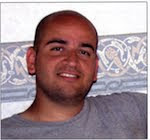 What does Mao Zedong have to do with that jerk brother or sister who wrecks everyone’s Thanksgiving? Funny you should ask. Barbara Oakley’s 2007 “Evil Genes: Why Rome Fell, Hitler Rose, Enron Failed and My Sister Stole My Mother's Boyfriend” masterfully connects the dots.
What does Mao Zedong have to do with that jerk brother or sister who wrecks everyone’s Thanksgiving? Funny you should ask. Barbara Oakley’s 2007 “Evil Genes: Why Rome Fell, Hitler Rose, Enron Failed and My Sister Stole My Mother's Boyfriend” masterfully connects the dots.Her starting point is “the successfully sinister.” As I explained in an earlier piece, Figuring Out Evil, these are your classic Machiavellians - charismatic and ruthless - out for themselves at the expense of anyone unfortunate enough to happen to breathe the same air. The “high-Machs” have long been known to correspond to sociopathy, but not all sociopaths wind up in prison.
No, the successfully sinister have a way of ending up in far more desirable places. We are led to believe the cream finds its way to the surface, but at the end of the day we find the scum also rises. But don’t pin the rap on pure sociopathy. It seems high-Machs have an equally high correspondence to borderline personality disorder.
The two conditions overlap, but in key areas they are in diametric opposition. While sociopaths have no problems with their inflated sense of self (so much so that sociopathy is easy to confuse with narcissism), those with borderline tend to suffer from a breakdown in personal identity. But it’s not a case of one or the other. Dr Oakley steers clear of over-reliance on DSM labels, but is comfortable in their use as a rough guide.
Your boss from hell may lean toward sociopathy, for instance, with an assist from borderline, and a bit of paranoia thrown in. Someone else may major on borderline and minor in sociopathy with some extra credits in narcissism. In previous pieces, Figuring Out Behavior and Brain Science and Recovery, I mentioned how Dr Oakley and I rely on the same brain science (in particular the work of Daniel Weinberger of the NIMH) in support of the proposition that our genes are not coded with the DSM in mind.
The same brain science also makes it abundantly clear that we are not as in control of our thinking and behavior as our over-inflated egos would have us believe. Someone who is genetically wired to over-react to stressful events, for instance, is prone to act a lot differently in social situations than those who are not. This is neither good in and of itself. Indeed, panic is often the appropriate response. But when we need to dismantle a bomb or talk our way through airport security, cool as a cucumber is desirable.
Cool as a cucumber also works when sticking a knife in your best friend’s back.
Now multiply all the complicating factors by infinity. Certain genetic tendencies and environmental influences may either mitigate or amplify other ones. Different parts of the brain may be over-communicating or under-communicating with each other. It may be this way in that individual or that way in this individual. We’re a long way from understanding evil, or for that matter just plain being an asshole, but we all know what being victimized is like.
According to Dr Oakley, it all may have started in earnest about 10,000 years ago with the introduction of agriculture. Prior to that, there was little advantage in gaming the system. But with the beginning of densely-populated permanent settlements and sophisticated social structures came unlimited opportunities to climb to the top on the backs of others, with disproportionate benefits accruing to the successful.
The trusting and naive majority were no match for this new breed of Machiavellian. From their new positions of wealth and power, the successfully sinister acquired the opportunity to breed in vast numbers and thus pass on their genes.
But there was a major catch. As the ranks of the successfully sinister grew, there were fewer altruists left to prey upon. Moreover, the remaining altruists had picked up their own new set of coping mechanisms. Dr Oakley compares these back and forth shifts to a Darwinian arms race. Indeed, our higher cortical regions with their highly developed social software may have evolved eons earlier as protection against our scheming and opportunistic fellow humans.
Meanwhile, altruism carries its own selective advantages. Not everyone wants to mate with a Visigoth, for instance, much less have one in the neighborhood. The altruists (I’m using the term very loosely, here) may eventually gain the upper hand, but in the process they wind up sowing the seeds of a new generation of victims - ripe for plucking by a yet more sophisticated breed of the sinister. On and on it goes.
Fast forward to the chaos of the twentieth century and the type of environment the Emperor Caligula would have felt very much at home in. Hitler and Stalin certainly did. So did Mao.
More to come ...
***
This is the fourth in a series based on Barbara Oakley's book, "Evil Genes." Previous pieces:
Figuring Out Evil
Figuring Out Behavior
Brain Science and Recovery






No comments:
Post a Comment